Easy First Sports 7 Year Old Girl
Physical activity is one of the most important parts of a child's health, well-being and learning. Helping them incorporate it into their life is a huge priority in modern parenting — yet many parents are dismayed to find their son or daughter is not interested in sports. In this article, we'll help by explaining how to get your kid to play sports and have fun doing it. Thomas Jefferson famously stated that a person of any age should devote at least two hours per day to exercise, as "a strong body makes the mind strong." This is even truer when it comes to children — not only do children's sports keep young bodies strong, but they also help growing minds. A child's main form of interaction with the world is through physical touch and play. Children pick things up and examine them with their hands. They learn the exhilarating sensation of running and becoming winded. Principles like teamwork, friendship and fun naturally arise from these activities, and they form neural connections that contribute heavily to a child's emotional and intellectual growth. As children turn into teenagers, sports can assume a much more serious role with the introduction of school teams. While some kids will gravitate toward them naturally, others may not show much interest. Some others may be turned off of sports entirely, which can be worrisome for parents who want them to have a means of staying fit. Let's examine how to introduce sports in a way that frames them as a continuous part of life — one that extends far beyond school teams and junior leagues. If it is so important to get kids interested in sports, why do so many of our children lose interest in them? Why is it that seventy percent of children choose to abandon organized sports by the age of thirteen? Furthermore, there are so many different forms of sports that surely there is something for nearly every type of child. Why, then, do some children seem to never find a sport they love? There are many answers, but part of the problem has to do with how we frame sports to our kids. Some kids feel pressured to pursue a sport that is not necessarily their calling. Others feel pressured to focus on one sport only, which can be limiting both physically and socially if they wish to participate in several different ones. On the other hand, sometimes we forget that muscles, ligaments and tendons need periods of rest — particularly in high-impact activities like pitching, running and kicking. We need to remember that kids should take breaks from sports if they are going to enjoy continuing them. A common factor among these problems is our occasional tendency to forget that our kids are just that: kids. Though we should strive to teach virtues such as focus and dedication, we also must remember that childhood is a euphorically free time in the human life. It is that very freedom that allows children to explore their world and discover their passions, resulting in a cultivated set of interests and the ability to enjoy different activities. A child may cycle through different interests at a dizzying pace, which can sometimes make parents feel they are complicit in bringing up a dilettante. What we lose sight of as adults, however, is a childlike liberty to explore every whim and fancy that delights the senses — and there are ways of nurturing that beautiful curiosity while still imparting valuable lessons on commitment and hard work. Making sure your child naturally incorporates exercise into their life is a mixture of several things: leading by example, doing sports together, keeping it fun and encouraging instead of forcing sports. It's important to combine these different examples for your child because kids learn through your actions, so simply stating that physical health is important is not enough to foster their love for team sports. Demonstrating how sports can positively impact them in multiple ways will provide even more motivation for them to incorporate sports into their own lives as they age. Team sports for kids also make a big difference in your child's mental and physical state, so providing these examples in your daily lives will positively influence their self-image and mindset as they grow. Let's look at each example individually and analyze how they inform your child's well-being and development. Lead by Example Remember that kids are sponges who absorb their understanding of life by watching their parents. This can be both a blessing and a curse — who hasn't heard the "do as I say, not as I do" line before? If you drive like a maniac or leave the kitchen messy, chances are high that you'll find your child emulating the behavior later on. Similarly, if your child sees you lazing on the couch watching TV all day, then they will have little reason to believe that exercise is truly an important part of life. Start proving the value of sports by participating in them yourself. There are so many ways to demonstrate this relationship with sports, and most of them will benefit you as much as your child. Join an after-work kickball team. Go for runs. Join the local gym. Maybe even pull out the old tennis racket or ice skates. There are sports like soccer, ultimate frisbee, basketball, baseball, softball and many more that offer pick-up games for those who want some casual sports involvement. Do Sports Together Nothing is so quintessentially American as throwing a baseball with your kid, but the benefits of doing so go well beyond quality time spent together. A child's tendency to associate sports with fun starts with you, the parent. Because a child forms their idea of normalcy by observing your behaviors, impart the importance of sports on them by doing fun athletic activities together. Teach your kid to ride a bike, and then take it a step further by going on bike rides together. This can be as simple as a ride down the street or as adventurous as zipping through the woods on mountain bikes. Get a basketball hoop and teach them the basics of dribbling and shooting. If you prefer to go to the gym, take your child with you and find fun activities for them to participate in. It is normal to introduce your kids to the sports you enjoy most yourself. However, as time goes on, pay close attention to your child and observe whether they seem to be having fun. It is entirely possible that your favorite sport won't interest them at all, and that is completely fine — just be ready to accept it and move onto another option. Try introducing them to many different sports and see if they are naturally inclined toward one. Keep It Fun No one likes a chore. Just as kids learn that sports are important by watching their parents participate in them, they also learn that sports are fun by watching people enjoy themselves while playing them. When you do teach your child basketball, baseball or any other sport, resist the urge to apply too much pressure. Instead, keep it light and have a sense of humor about everything. A child will not have interest in learning proper shooting technique if they don't first enjoy the game — so make sure you are having fun before all else. Here are some ways to make sports fun for kids: 1. Make your own mini-games out of sports. For example, imagine you are playing basketball together with your six-year-old son. You notice he enjoys throwing the ball upwards as high as he can and then running to catch it before it bounces. You had hoped that by now he would be learning to sink jump shots from the foul line, but that dream doesn't seem to be panning out. Don't force him to stop doing what he finds fun — instead, get creative and see if you can form your own special mini-game the two of you can enjoy. For instance, how high can you count between him letting go of the ball and then catching it? Perhaps you can have your own running scoreboard. This reinforces the idea that sports are something to look forward to and that the primary goal is to have fun. 2. Have your child invite their friends over to play sports together. Kids love playing games with each other, and having a group of friends over to play is a wonderful way to nurture love for a sport. Think of a way you can contribute to making your house a good site for an activity your child enjoys. Is there a field nearby for soccer? Do you have a yard that might work for football or baseball? Do you own woods where you could build trails? Is your driveway big enough for a basketball hoop, either in the ground or on the side of your house? When your house is a meeting place for your child and their friends, it makes playing sports that much more special and memorable. 3. Stay positive about sports — don't let disappointment show. No child wants to be a disappointment to an adult. Make sure to always stay upbeat and encouraging about sports. Smile frequently and don't let the mood turn dark, as this can create pressure and even leave a lasting negative impression on a child. You don't want them to associate sports with being a disappointment to their parents or their coach. Try saying things like, "it looks like you were having fun out there today," or "all I care about is that you tried your hardest and you had fun." These little statements create the feeling that sports will not add stress to life, but rather be a place for relieving it. 4. Remember that kids have short attention spans. Don't get the idea that you will be focusing on one activity or another for too long. Kids grow tired of activities when they drag on for too long. To keep your child having fun, try changing things up every few minutes. Don't go into a tennis game expecting to play the best three out of five sets — set a goal and make sure it doesn't turn into a chore for your child. When you notice them starting to lag or look bored, switch to something else as a change of pace. 5. Don't underestimate the "wow" effect of watching sports together Who among us didn't want to play hockey after watching "The Mighty Ducks?" There are many sports movies out there that serve to inspire kids to try something new. Whether it's the dazzling aura of stadium lights on a football field or a story about a baseball player, sports movies can be a fun way to catch your kid's interest. Also, going to sports games together fosters bonding and can build the desire to become part of a team. Go to a basketball game and have fun watching it together. The more good memories associated with a sport, the more likely your kid will want to join in on the fun someday. Encourage, Don't Force This ties in with trying to keep sports fun instead of chore-like. Your role in getting your child involved in sports is to frame them as fun rather than yet another obligation. People don't like being bad at things, and children are no exception. If your child seems to enjoy a sport, encourage them by telling them what they are doing well. Even by saying, "I love the way you cheer the team on," you are making it more likely that they will feel positive about their own contribution. Also, don't get too hung up on pushing your child to practice drills repetitively. While you will undoubtedly want to instill work ethic in them, don't lose sight of the number one goal: They should be having fun while exercising. Even if a child works hard and excels at a certain sport, when it stops being fun, they are unlikely to continue pursuing it. The goal here is a long-term one: You want sports to be a part of their life not only as children, but also as eventual adults. Kids will enjoy different sports at different ages. Babies and toddlers develop their motor skills through playing, so it is important to provide them with toys to do so. Between ages one and three, a tricycle is a great introduction to movement and self-propelled fun. This minimal amount of movement is enough to keep your child active and help them develop a love for activities that engage their bodies and minds. Beyond those formative early years, specific sports will become appropriate to introduce to children. Certain sports are better suited for specific years of your child's life, such as structured team sports for kids. Because children often begin their introduction to sports through free play, they will develop a love for staying active, ultimately guiding them to team sports as they get older. Being part of a team will allow them to develop long-lasting friendships and a sense of teamwork and belonging. Encouraging their love for physical activity and movement is especially crucial as they develop. Participating in sports and staying active from an early age will enhance their mental focus and keep their bodies strong. Let's look at different sports for different age groups. Three to Five Years Old When your child is at this young age, organized sports are not typically a viable option. Use your creativity and play a lot of different games. Throwing and kicking balls, playing tag and hide-and-go-seek and running are excellent ways to get them associating sports with fun. Don't be afraid to use this time to introduce your child to sports they might play later. Learning how to ski, play basketball, swing at the tee-ball or score a goal are great ways to pique their interest in certain activities. At three years old, it's best for children to free play and use their imaginations on the playground. This type of exercise is exciting for children and encourages their growth and development. It also allows them to build friendships at an early age. Because free playing enables children to use their imagination, it's best to avoid structured team sports for your toddler. However, you may notice your toddler expressing an interest in certain sports. If this is the case, foster their love for the sport. Doing so will help them be more excited to participate in it when they get older. Some of the best sports for three-year-olds include swimming, dance, karate, running and gymnastics. These sports encourage hard work and individual mental focus, and they also foster teambuilding. As your child grows, they will improve their skills and apply these talents in a team setting. Six to Nine Years Old At this age, children are entering school and will be interested in new experiences and skills. A social life is extremely important to young children, so they may be drawn to sports their friends are playing. Playing sports is also an important way for children to develop skills like cooperating, resolving conflict and winning and losing gracefully. Particularly in the United States, there are loads of options for children to get involved in sports. For example, some children may be drawn to gymnastics. As a largely individual sport, it still is usually taught in groups that allow for plenty of socializing. Children get to jump on trampolines, do somersaults, flop into foam pits and more — which makes it fun for them. Another sport appropriate for children ages six to nine is soccer. Soccer groups at this age range from ultra-beginner to youth leagues. There are also sports like karate, dance, tennis, ice skating and skiing that children will enjoy learning. Make sure whatever league your child happens to join is fun for them, and don't forget to pay close attention to whether they seem interested in trying other sports out. Nine to 12 Years Old When a child reaches pre-teenage years, they start to develop a sense of independence. Social interaction is also a high priority, meaning group sports will likely be a good avenue for them. Soccer, hockey, baseball, basketball and other such leagues will start to demand a bit more time from children around this age. Expect to spend quite a bit of time shuttling kids to and from practices and games, and take the opportunity to encourage them and become involved in the process. This is also a great time to introduce sports that may or may not be part of their school's program. Activities like mountain biking, rock climbing, skiing, snowboarding and diving may appeal to more adventurous children who need an outlet for their energy. Teenage Years and Older By the time your child hits teenage years, your role as a parent changes slightly. Because teenagers are much more independent, they are likely to dictate more of their own choices regarding sports. Keep practicing encouragement, support and openness. If a high school sports team is adding more stress than fun to your child's life, they may want to quit. While accepting such a decision can be difficult as a parent, don't forget our mantra — sports should stay fun. Gone are the days of laying one's safety on the line for a sport. Injuries are painful, inconvenient and expensive, and they can easily lead to children putting some distance between themselves and sports. If your child plays high-impact sports like football or hockey, stress the importance of safety — sports do not have to be dangerous, and it is very possible to play them safely! Warning against potential injuries will also allow your child to approach their team sport safely and effectively. To keep your child safe and active, encourage different sporting practices that will improve their safety. For example, emphasize the importance of warming up and staying hydrated. Both of these practices will decrease the possibility of unsafe play, such as pulling a muscle or not giving their body the energy it needs before intense physical activity. Also,prioritize plenty of time for rest and recuperation. The off-season does not need to be devoted to intense conditioning, but rather should include a mixture of other activities. This mixture will encourage your child to develop a balance between their personal lives and team sports. By striking a balance between physical activity and other aspects of their life, your child will develop a longer-term interest in their sport since they won't get burned out or become overworked. Sports echo real life: There is competition, teamwork, victory, loss, conflict and resolution. Being part of a sports team teaches the value of looking out for others, developing trust and confidence and showing respect for authority and for other teammates. Being part of a team can build confidence, and confident children tend to have an easier time with school and social situations. But even simply being part of the group, regardless of natural athletic ability, allows for the opportunity to bond with others. Sports are a great equalizer in that they introduce kids of different upbringings, ethnicities and schools. They create an exciting opportunity to bond with students who may not be in a child's own peer group academically, giving them a better chance of finding someone they click with. Spooky Nook Sports offers the largest indoor sports complex on the continent of North America. While that is an impressive claim, our true point of pride is getting people interested and hooked on athletics. With over 700,000 square feet of indoor real estate, we host facilities for nearly any sport you can think of, including: If you are struggling to get your kid interested in sports, come take a fun tour of the facility and let them see all the different options available. If swinging a bat isn't their cup of tea, perhaps seeing someone climb a rock wall or a group of friends participating in bubble ball will capture their imagination. Whatever sport your child chooses to embrace, Spooky Nook Sports is a great launchpad for their discovery of it. Bring your imagination — and your child's as well — and let us do the rest.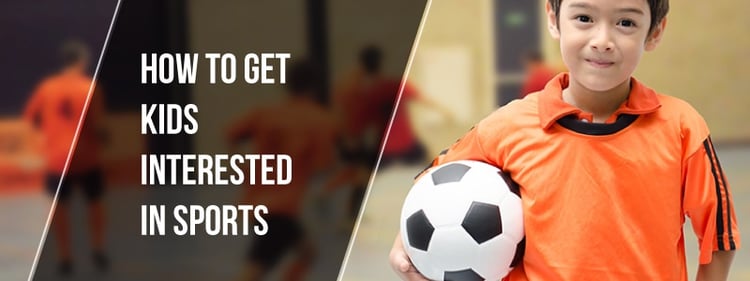

Why Do So Many Kids Lose Interest in Sports?
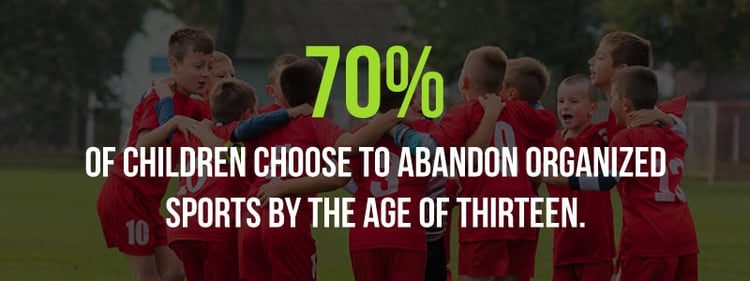

How to Get Your Kids Hooked on Sports


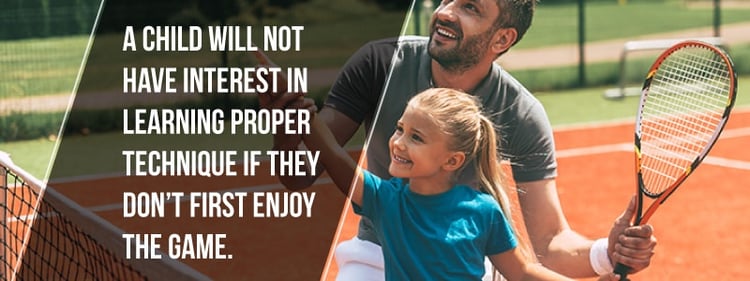


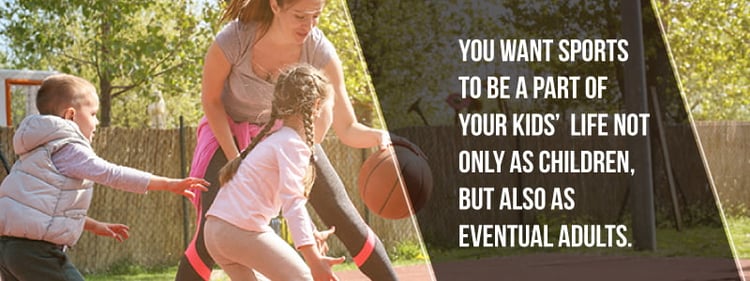
Best Sports for Kids at Specific Ages

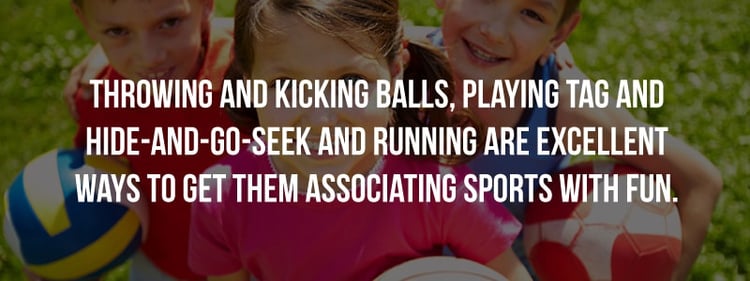
What Sports Can 3-Year-Olds Play?


Sport Safety
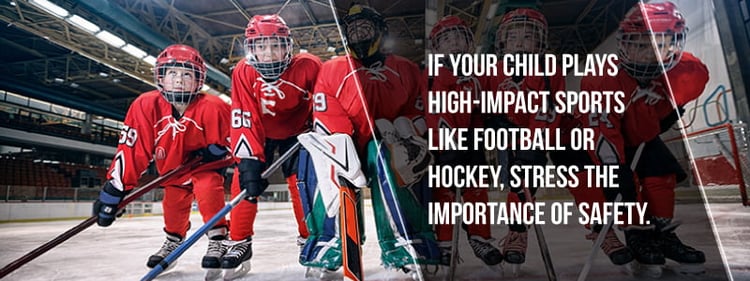
How Sports Form Friendships

Get Involved at Spooky Nook Sports

Source: https://www.spookynooksports.com/blog/manheim/how-to-get-kids-interested-in-sports
0 Response to "Easy First Sports 7 Year Old Girl"
Post a Comment